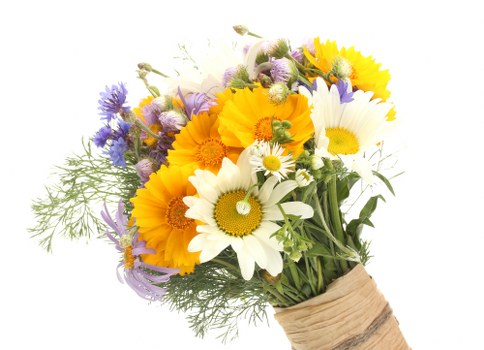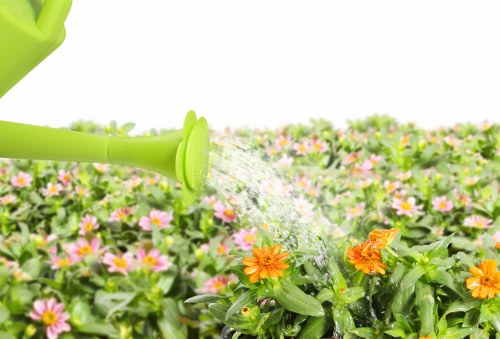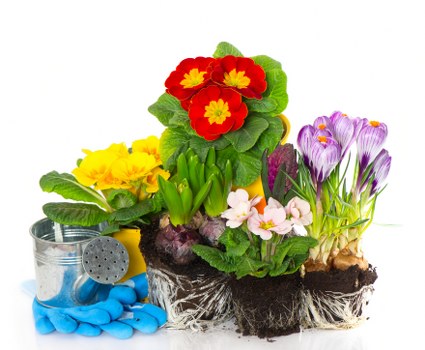Why People in Tow Law Choose Flower Shops
- Trusted Locally – Thousands of Tow Law Bouquets Delivered Each Year
- Same-Day & Next-Day Delivery Across Tow Law
- 4.9★ Feedback from Real Tow Law Customers
- Fresh Morning Market Stems Selected Just for Tow Law Orders
- Hand-Crafted Arrangements by Professional Florists
- Guaranteed On-Time Arrival for Homes, Offices & Events
- Love-It-or-Replace-It Policy on All Tow Law Deliveries
- Planet-Friendly Packaging to Reduce Local Waste
- Safe & Secure Checkout with Full Data Protection
- Clear, Fair Pricing – No Unexpected Fees
- Friendly Customer Support 7 Days a Week
- Working to the Standards of UK Floristry Best Practices
Flower Delivery Laws in Tow Law: What You Need to Know

Flower delivery services in Tow Law play a vital role in bringing joy and beauty to the community. Whether you're sending a bouquet for a special occasion or arranging regular deliveries for a business, understanding the local laws and regulations is essential. This article provides a comprehensive overview of the legal aspects surrounding flower delivery in Tow Law.
Operating a flower delivery business involves adhering to various laws to ensure compliance and provide quality service. From business licensing to consumer protection, being informed helps prevent legal issues and fosters trust with customers.
In Tow Law, specific regulations may govern how businesses operate, including flower delivery services. These laws are designed to maintain public safety, protect consumer rights, and ensure fair competition among service providers.
Business Licensing and Permits

Before starting a flower delivery service in Tow Law, it's crucial to obtain the necessary licenses and permits. These legal requirements ensure that your business operates within the framework set by local authorities.
Typically, you'll need to register your business with the local council and obtain a general business license. Depending on the size and scope of your operations, additional permits may be required, such as a vendor's license if you plan to sell flowers at markets or public events.
Compliance with zoning laws is also important. Ensure that your business location is approved for commercial activities related to flower delivery. This helps avoid potential fines and legal complications in the future.
Local Zoning Laws

Zoning laws dictate where certain types of businesses can operate within Tow Law. For flower delivery services, this typically involves ensuring that your storefront or storage area is located in a zone designated for commercial use.
Violating zoning regulations can result in penalties, including fines or the closure of your business. It's advisable to consult with local zoning authorities or a legal advisor to confirm that your business location complies with all relevant laws.
Additionally, understanding parking and traffic regulations is essential, especially if your delivery fleet operates in residential areas. Proper adherence to these laws ensures smooth operations and maintains good relations with the community.
Consumer Protection Laws

Consumer protection laws are in place to safeguard customers from unfair business practices. For flower delivery services in Tow Law, this means providing accurate descriptions of products, transparent pricing, and reliable delivery schedules.
Ensuring that customers receive exactly what they order builds trust and encourages repeat business. Inaccurate representations or failure to deliver on time can lead to complaints, legal action, and damage to your business reputation.
It's also important to have clear policies regarding returns, refunds, and cancellations. Communicating these policies transparently helps manage customer expectations and reduces the likelihood of disputes.
Data Protection and Privacy

With the increasing use of online platforms for ordering flower deliveries, protecting customer data is paramount. Compliance with data protection laws ensures that personal information is handled securely and responsibly.
Implement robust security measures to protect customer data from breaches and unauthorized access. This includes using secure payment gateways, encrypting sensitive information, and regularly updating your systems to address potential vulnerabilities.
Additionally, provide customers with clear information about how their data is used and obtain consent where necessary. Transparency in data practices fosters trust and complies with legal requirements.
Transportation and Delivery Regulations

Flower delivery involves transportation, which is subject to specific regulations. Ensure that your delivery vehicles meet safety standards and that drivers hold the appropriate licenses for operating them.
Compliance with traffic laws is critical. This includes adhering to speed limits, avoiding prohibited parking areas, and ensuring that deliveries do not disrupt local traffic flow.
Additionally, consider environmental regulations related to vehicle emissions and waste disposal. Implementing eco-friendly practices not only complies with laws but also appeals to environmentally conscious customers.
Insurance Requirements

Having the right insurance coverage protects your flower delivery business from potential risks. General liability insurance covers accidents or injuries that may occur during deliveries, while vehicle insurance protects your delivery fleet.
Consider specialized insurance policies that cover product damage or loss during transit. This ensures that both your business and your customers are protected in case of unforeseen events.
Consult with insurance providers to determine the best coverage options for your specific business needs. Adequate insurance not only safeguards your operations but also enhances your credibility with customers.
Employment Laws

Hiring staff for your flower delivery service introduces additional legal considerations. Comply with employment laws regarding wages, working hours, and workplace safety.
Provide clear employment contracts that outline job responsibilities, compensation, and benefits. Ensuring fair treatment of employees fosters a positive work environment and reduces the risk of legal disputes.
Additionally, implement training programs to educate employees about safety protocols, customer service standards, and compliance with local laws. Well-informed staff contribute to the smooth and lawful operation of your business.
Health and Safety Regulations

Maintaining health and safety standards is crucial for flower delivery services. This includes ensuring that delivery vehicles are regularly maintained and that drivers are trained to handle flowers carefully to prevent damage.
Implement ergonomic practices to reduce the risk of workplace injuries. Providing the necessary equipment and training ensures that employees can perform their tasks safely and efficiently.
Regularly review and update your health and safety policies to comply with any changes in regulations. Staying proactive in this area minimizes risks and promotes a safe working environment.
Local Enforcement and Compliance

Staying informed about local enforcement practices helps ensure ongoing compliance with Tow Law's flower delivery regulations. Regular inspections and audits may be conducted to verify adherence to laws.
Maintain accurate records of your operations, including delivery schedules, customer interactions, and financial transactions. Organized records facilitate compliance and make it easier to address any inquiries from authorities.
Engage with local business associations or chambers of commerce to stay updated on regulatory changes and best practices. Networking with other local businesses can provide valuable insights and support.
Neighborhoods and Nearby Areas

Flower delivery services in Tow Law also cater to surrounding areas, each with its unique characteristics and demands. Understanding the nuances of these neighborhoods enhances service quality and customer satisfaction.
- Chester-le-Street: Located just a few miles from Tow Law, Chester-le-Street offers a vibrant market for flower deliveries, especially during local festivals and events.
- Brandon: This nearby town has a growing demand for timely flower deliveries, making it a lucrative area for expanding your service.
- Annfield Plain: Known for its tight-knit community, Annfield Plain values personalized flower delivery services for special occasions.
- Stanhope: Scenic and bustling, Stanhope presents opportunities for both residential and corporate flower deliveries.
- Kimblesworth: With a mix of residential and commercial properties, Kimblesworth requires versatile delivery options.
- Springwell: Springwell's residential areas are ideal for regular flower subscriptions and special event deliveries.
- Bishop Auckland: As a larger town nearby, Bishop Auckland offers extensive opportunities for bulk flower orders and business contracts.
- Durham: The university city of Durham demands a wide range of flower delivery services, from student gifts to corporate events.
- Consett: Consett's diverse community provides a steady demand for various flower arrangements and delivery styles.
- Esh Winning: Esh Winning's local events and community gatherings present opportunities for themed flower deliveries.
- West Auckland: With its strategic location, West Auckland serves as a hub for deliveries to both urban and rural areas nearby.
- Consett Knock: A picturesque area where timely and beautiful flower deliveries are highly appreciated for both personal and business needs.
Conclusion

Understanding and adhering to the flower delivery laws in Tow Law is essential for operating a successful and reputable business. From obtaining the necessary licenses to ensuring compliance with consumer protection and transportation regulations, each aspect plays a crucial role in your service delivery.
By staying informed about local laws, maintaining high standards of service, and engaging with the community, your flower delivery business can thrive in Tow Law and its surrounding areas. Prioritizing legal compliance not only prevents potential issues but also builds trust and fosters long-term relationships with your customers.
Embrace the responsibility that comes with providing a beloved service, and your flower delivery business will bloom in Tow Law's vibrant community.
Frequently Asked Questions

1. Do I need a special license to start a flower delivery service in Tow Law?
Yes, you typically need to register your business with the local council and obtain a general business license. Depending on your operations, additional permits may be required.
2. What are the consumer protection laws I should be aware of?
Ensure accurate product descriptions, transparent pricing, reliable delivery schedules, and clear policies on returns, refunds, and cancellations to comply with consumer protection laws.
3. How can I protect customer data in my flower delivery business?
Implement robust security measures, use secure payment gateways, encrypt sensitive information, and be transparent about data usage to comply with data protection laws.
4. Are there specific transportation regulations for flower deliveries?
Yes, ensure your delivery vehicles meet safety standards, drivers have appropriate licenses, adhere to traffic laws, and consider environmental regulations related to vehicle emissions.
5. What insurance do I need for my flower delivery business?
General liability insurance, vehicle insurance, and specialized insurance covering product damage or loss during transit are recommended to protect your business and customers.
